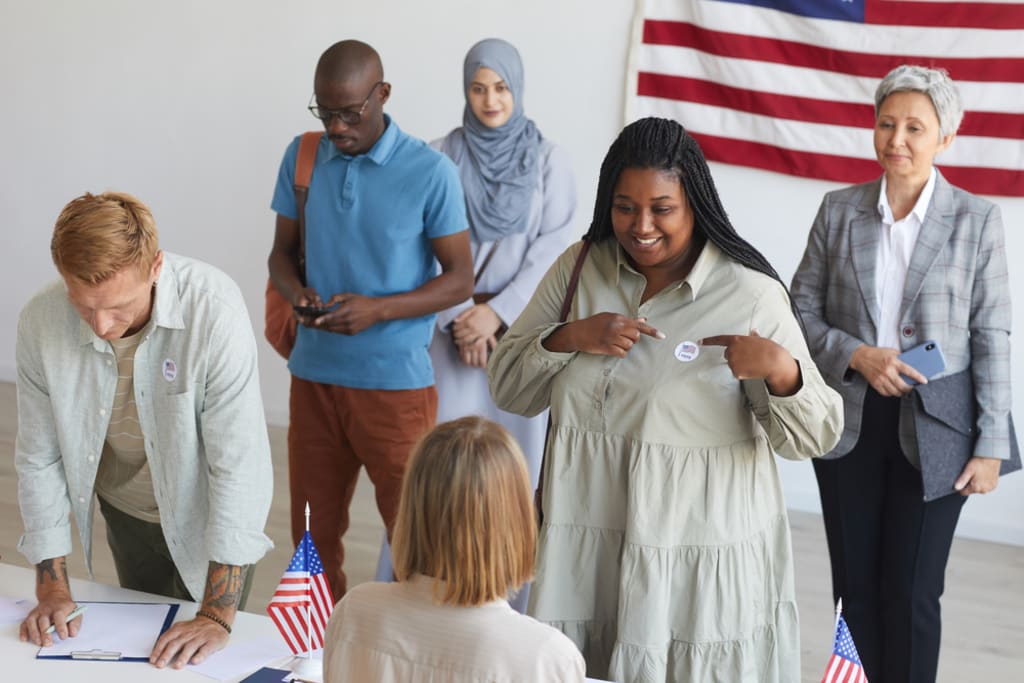The Great Debate: Balancing Voting Rights for All Americans
Examining the Best Approach to Ensuring Access and Integrity in Our Democracy

Voting is a fundamental right in democratic societies. It is the cornerstone of free and fair elections and a crucial way for citizens to participate in the political process. However, the question of who should have the right to vote and under what conditions has been a contentious issue throughout history. Some argue that voting rights should be expanded to ensure that all citizens can participate in the democratic process, while others argue that voting rights should be restricted to ensure that only eligible voters can cast their ballots. In this article, we will explore the arguments for and against expanding and restricting voting rights and weigh the potential benefits and drawbacks.
Arguments for expanding voting rights:
Ensuring equal representation: One of the primary arguments for expanding voting rights is that it ensures equal representation for all citizens. In a democratic society, every citizen should have a say in who governs them, regardless of their race, gender, or socioeconomic status. Expanding voting rights to all eligible citizens helps ensure that everyone's voice is heard and that the government is accountable to all its citizens.
Promoting civic engagement: Another argument for expanding voting rights is that it promotes civic engagement. By encouraging more people to participate in the democratic process, we can create a more informed and engaged citizenry. This can lead to better-informed policy decisions and more responsive government.
Preventing voter suppression: Expanding voting rights can also help prevent voter suppression. In some cases, restrictive voting laws and practices have been used to disenfranchise certain groups of voters, such as people of color or low-income individuals. Expanding voting rights can help ensure that all eligible voters can exercise their right to vote without facing unnecessary obstacles.
However, opponents of expanding voting rights argue that it could lead to increased voter fraud and weaken election integrity. They suggest that there should be certain restrictions on who is eligible to vote and how they can cast their ballot.
Arguments for restricting voting rights:
Preventing voter fraud: One of the primary arguments for restricting voting rights is to prevent voter fraud. Some argue that expanding voting rights could lead to increased voter fraud, such as people voting multiple times or non-citizens voting in elections. Restricting voting rights can help ensure that only eligible voters are able to cast their ballots.
Ensuring election integrity: Another argument for restricting voting rights is to ensure election integrity. By implementing measures such as voter ID laws, we can help prevent fraud and ensure that only eligible citizens are voting in elections. This can help ensure that the results of elections are accurate and reflective of the will of the people.
Maintaining the status quo: Some argue that restricting voting rights is necessary to maintain the status quo. In some cases, expanding voting rights could lead to significant changes in the political landscape, which could be unsettling for some individuals or groups. By restricting voting rights, we can ensure that the political process remains stable and predictable.
It is worth noting that some of the arguments for restricting voting rights have been used to justify discriminatory policies that have disproportionately affected marginalized groups. For example, voter ID laws have been used to disenfranchise low-income individuals, people of color, and other marginalized groups who may not have access to the necessary identification documents.
In conclusion, the question of whether voting rights should be expanded or restricted is a complex one with no easy answers. While there are valid concerns about voter fraud and election integrity, it is important to ensure that all eligible citizens have the right to vote and participate in the democratic process. By expanding voting rights, we can create a more engaged citizenry and ensure that everyone's voice is heard. At the same time, it is important to ensure that measures are in place to prevent voter fraud and maintain election integrity. Ultimately, the best approach may be to find a balance between expanding and restricting voting rights, to ensure that we are promoting democratic participation while also maintaining the integrity of our electoral process.
It is important to note that voter fraud is relatively rare and that restrictive voting laws can often have a disproportionate impact on certain groups of voters. It is crucial to address these issues in a way that does not disenfranchise eligible voters.
One potential solution is to implement measures that make voting more accessible and convenient for all eligible citizens, while also maintaining safeguards to prevent fraud. This could include measures such as automatic voter registration, early voting, and mail-in voting, which have been shown to increase voter turnout and make it easier for citizens to cast their ballots.
It is also important to ensure that all eligible voters have equal access to the ballot box. This means addressing barriers to voting such as strict voter ID laws, purging of voter rolls, and limited polling places in certain areas. By addressing these issues, we can help ensure that all eligible citizens have the ability to exercise their right to vote.
In conclusion, voting rights are a crucial part of our democracy, and it is important to ensure that all eligible citizens have the ability to participate in the democratic process. While there are valid concerns about voter fraud and election integrity, it is important to find a balance between expanding and restricting voting rights to ensure that we are promoting democratic participation while also maintaining the integrity of our electoral process. By implementing measures that make voting more accessible and convenient for all eligible citizens, we can create a more engaged and representative democracy





Comments
There are no comments for this story
Be the first to respond and start the conversation.